Physical therapists have a lot on their plate. Not only do they need to care for their patients, but they must also keep up with the administrative tasks that pile up throughout the day.
That’s why many physical therapy clinics hire receptionists to handle incoming patients and clerical work. A physical therapy receptionist is the first point of contact for patients, so choosing the right person for the job is essential.
Here's a detailed guide on what a physical therapy receptionist does and how to hire the best person for the job. You’ll also discover the benefits of hiring a virtual physical therapy receptionist for your clinic.
What is a physical therapy receptionist?
A physical therapy receptionist is a vital member of the rehabilitation team, as they manage the administrative side of the physical therapy practice. Their responsibilities include the following:
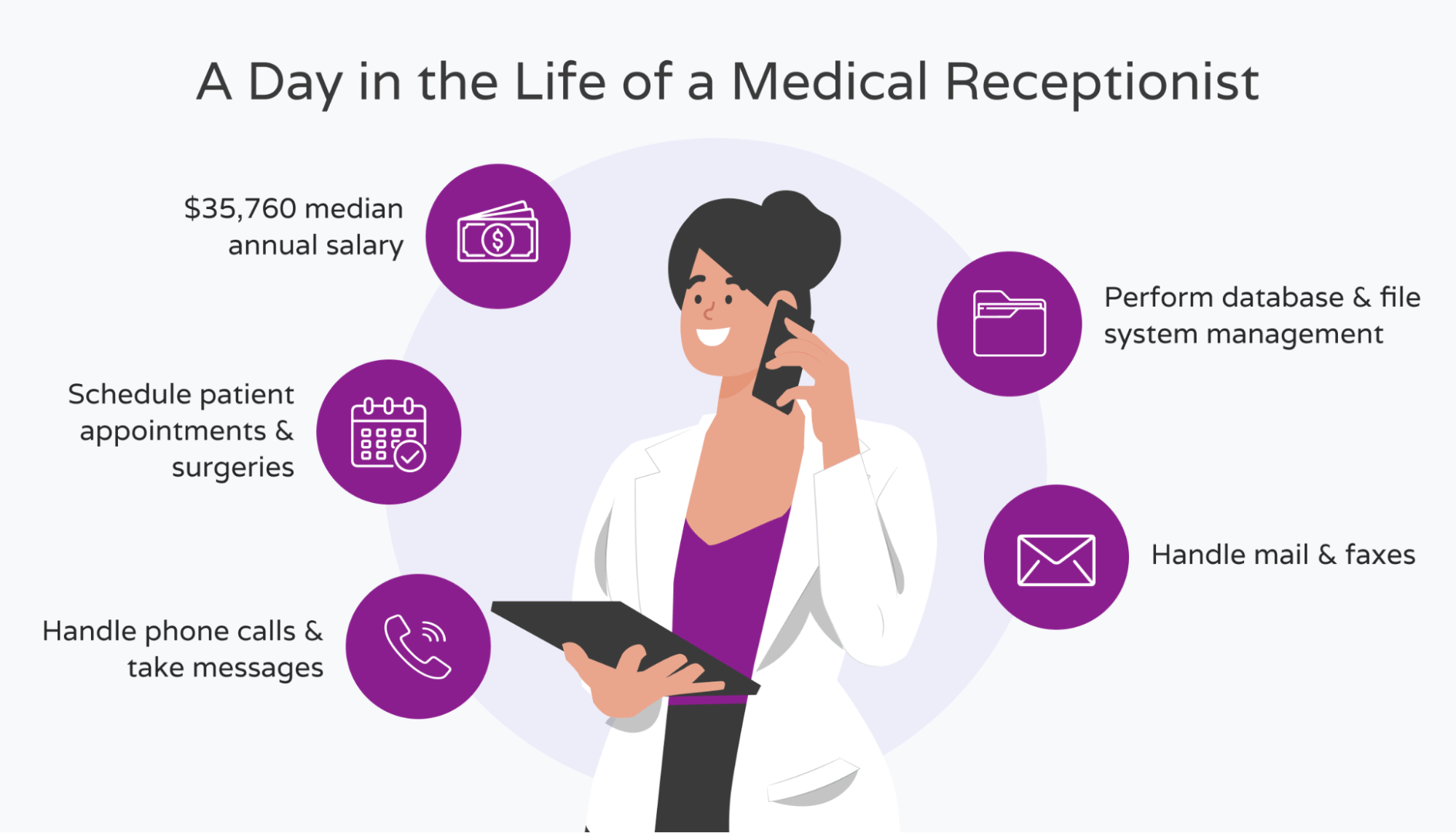
- Greeting patients: The receptionist is the first person patients will see when entering the office, so they must be friendly and welcoming. They also instruct them on how to fill out the necessary paperwork for their visit.
- Answering phone calls: Physical therapy clinics that don’t have receptionists can use automated answering services. But when patients want information about a specific treatment plan, an automated voice can’t help them. That’s why it’s better to have an actual person answer incoming phone calls.
- Booking, canceling, and rescheduling appointments: A talented physical therapy receptionist can manage the entire clinic’s calendar and make sure booked appointments work with everyone’s schedules.
- Sending appointment reminders: Your receptionist can help reduce the number of no-shows and late arrivals by getting in touch with your patients personally.
- Updating patient records: The best physical therapy receptionists understand how EMR/EHR systems work, so they can update them independently.
- Billing and insurance: A physical therapy receptionist can help reduce your patients’ wait times by handling preauthorizations and other insurance details.
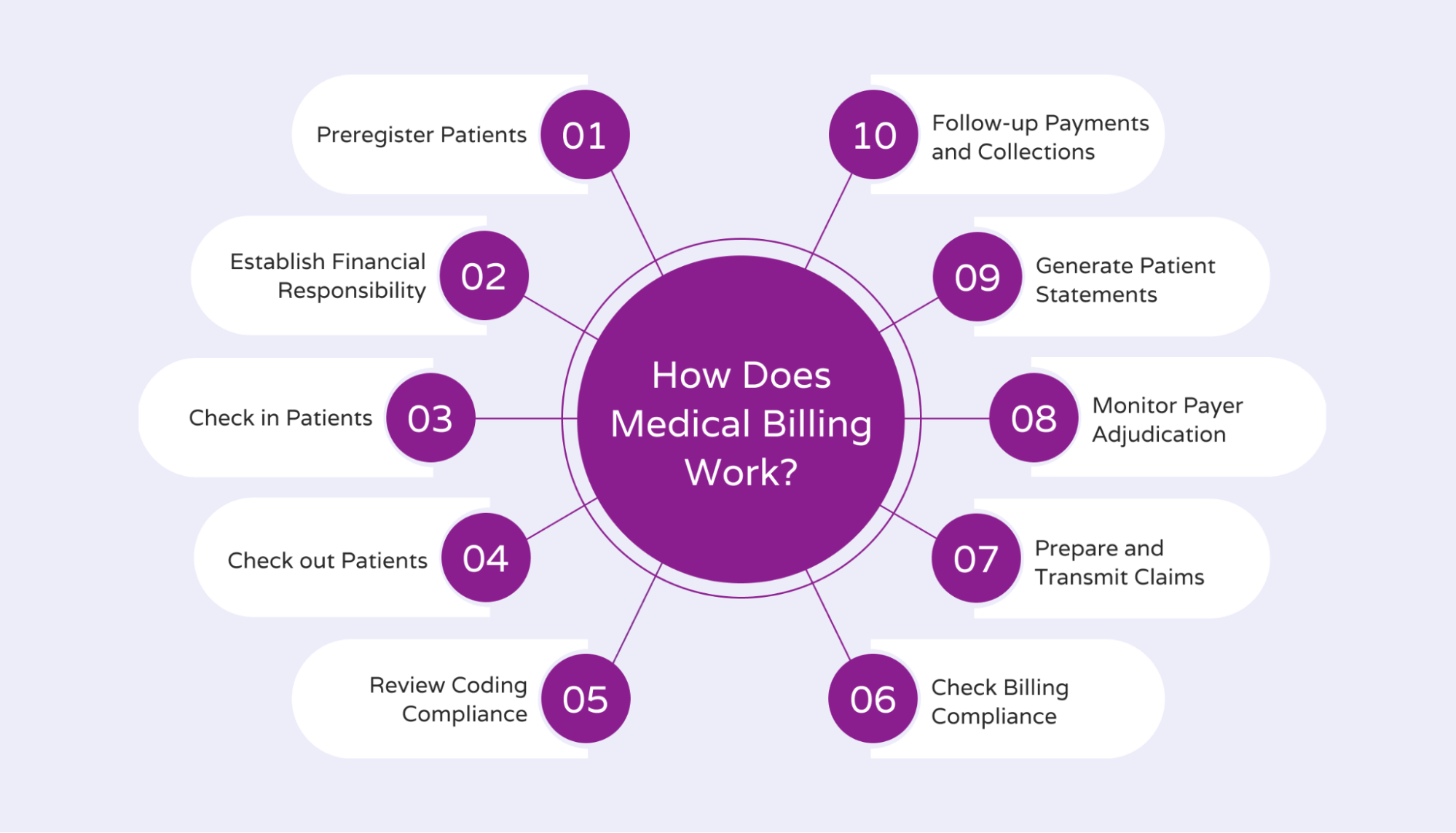
- Maintaining the reception area: A receptionist will impact how patients perceive your clinic by how tidy they keep the reception area.
Did you know that a virtual physical therapy receptionist can handle nearly all of the tasks listed above for less than half the cost of an in-person receptionist? To understand how Hello Rache can help your medical practice save time and money with qualified virtual receptionists, book a call with our team.
Qualities of a physical therapy receptionist
A physical therapy receptionist must have certain qualities to excel at their job. Here are some important attributes to look for in a candidate:
- Empathy: When patients walk into any healthcare setting, they may already be stressed or experiencing pain. These individuals don't want any added hassle. The physical therapy receptionist should assist them empathetically.
- Flexibility: If your patients book early morning or evening appointments, you’ll need a receptionist who’s available during those time slots.
- Problem-solving: Patients can be difficult to interact with if they're stressed. A physical therapy receptionist should be able to solve problems quickly and efficiently.
- Technical skills: A receptionist needs to know how to use Excel and payment software. They should also be familiar with electronic health records. This will help them update patient information accurately.
- Multitasking: Working in reception means being able to handle conversations with patients while someone’s waiting on the phone and someone else is waiting to pay. The best candidates will know how to prioritize tasks to best serve everyone.
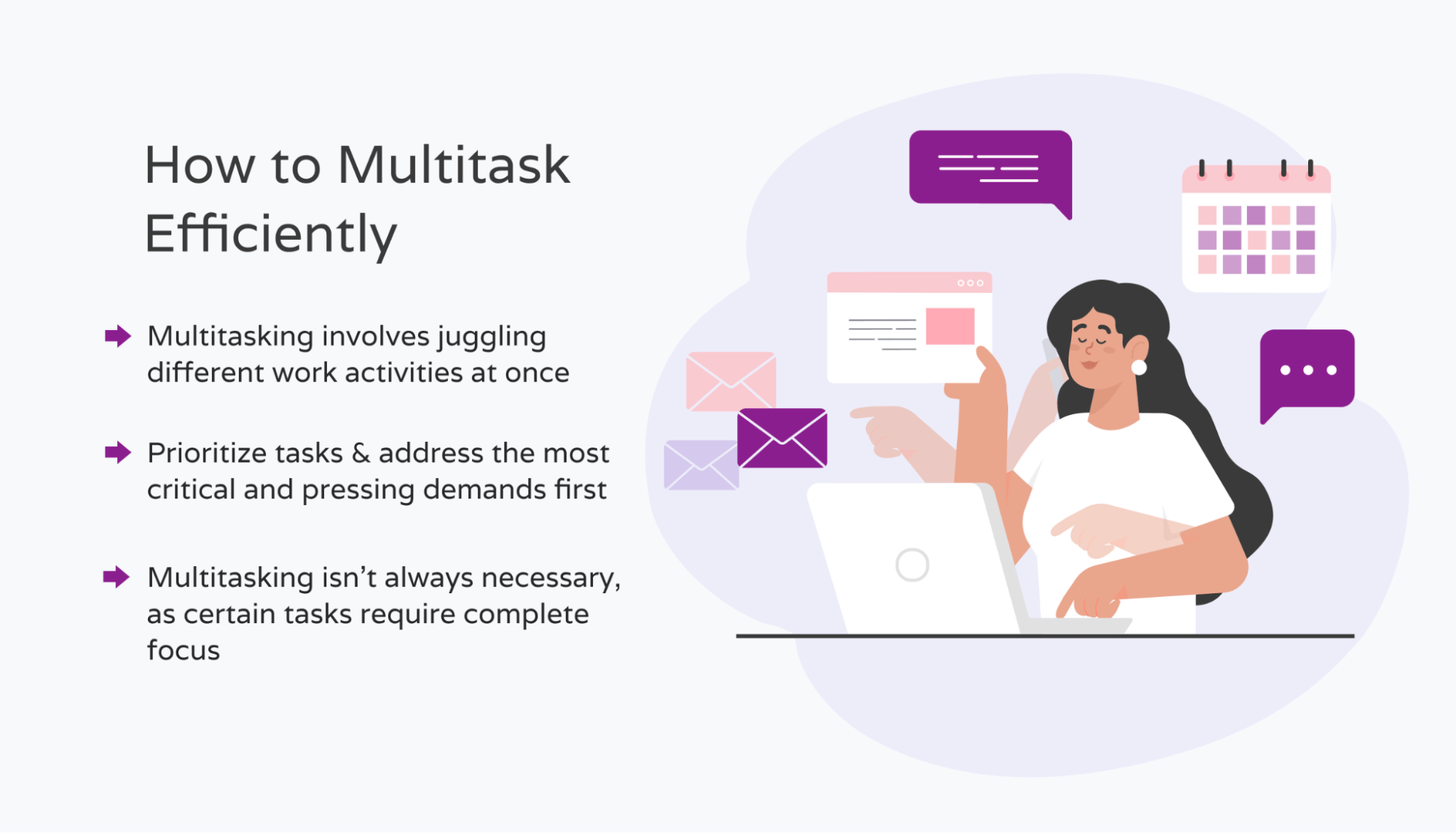
- Organizational skills: Medical charts, patient files, insurance claims — the list of documents to keep organized is long.
- Communication skills: Physical therapy receptionists communicate with patients all day, whether face-to-face or on the phone.
- Patience: Patients can sometimes be nervous or impatient, and your receptionist should be able to handle them with tact.
In addition to these skills, the ideal physical therapy receptionist should understand medical terminology. Without a strong foundation, they’ll struggle to answer patient queries on the phone.
While a generalist receptionist can easily answer incoming calls and greet patients, they may need to consult with your medical staff frequently — defeating the purpose of saving you time. On the other hand, someone who’s familiar with physical therapy specifically will be better able to advise patients.
How much does a physical therapy receptionist earn?
A medical receptionist earns an average of $16.74 per hour or $38,949 per year. Several factors affect a medical receptionist’s salary, including:
- The size and location of the facility: A talented candidate will expect a higher salary from a well-established hospital in a big city than from a small clinic in a rural area. A smaller physical therapy practice in general, regardless of its location, will often pay lower wages.
- The healthcare setting (outpatient, inpatient, hospital, private practice, etc.): Since hospitals offer around-the-clock care, receptionists who work in these facilities will expect higher wages than those who work in practices that are only open during regular business hours.
- Their experience: The more experience a medical receptionist has, the higher the wage they’ll expect to get. They may also expect to earn more if they have a relevant degree or certification.
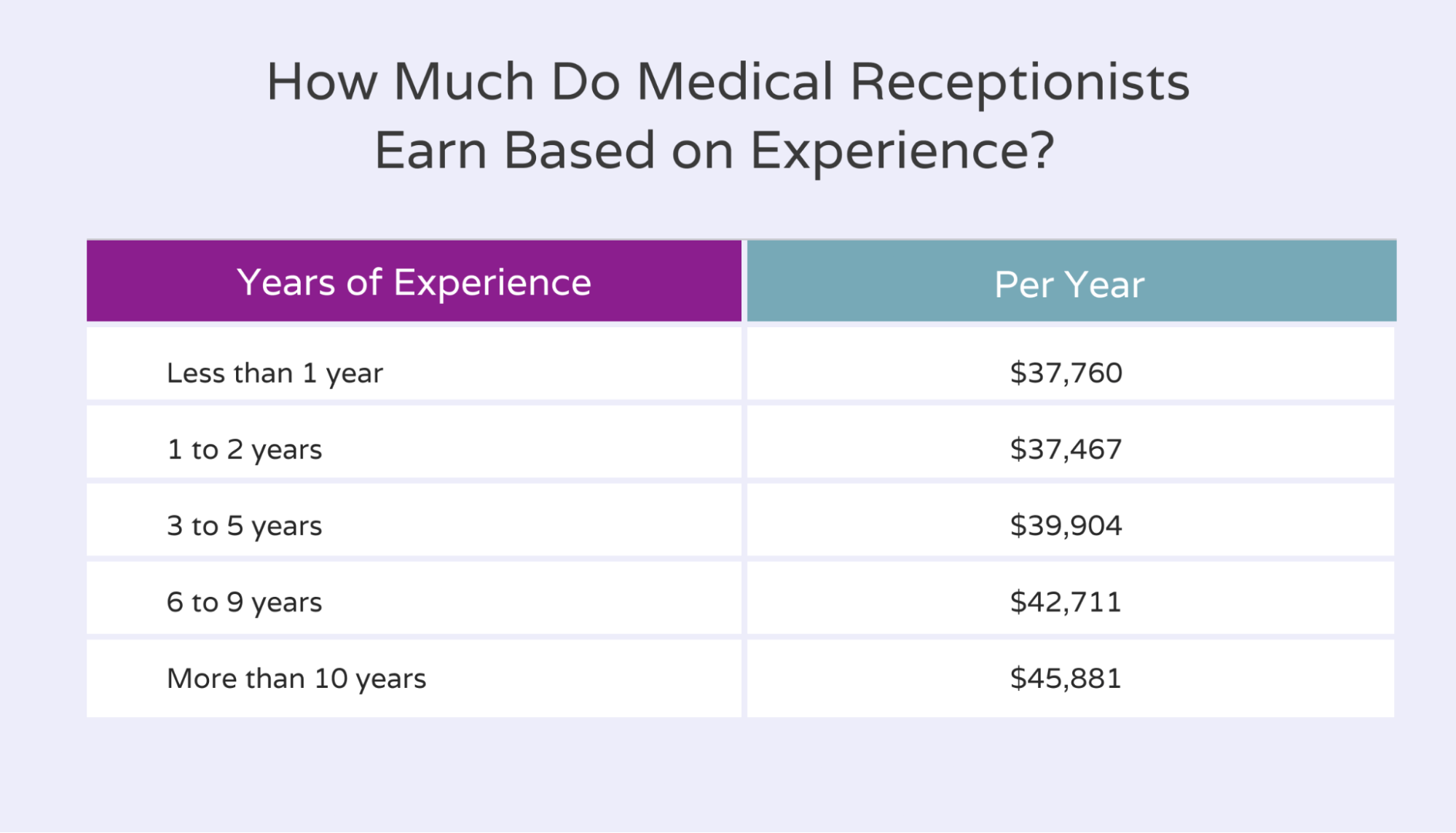
The responsibilities of the position may also affect the salary. Someone who only manages the phones and greets patients may cost you less than a receptionist who also transcribes medical notes.
What employee benefits do physical therapy receptionists get?
When hiring a physical therapy receptionist, offering them benefits can help ensure higher retention. Some benefits you can offer include the following:
- Health insurance
- Life insurance
- Tuition reimbursement
- Paid time off
- Employee assistance programs
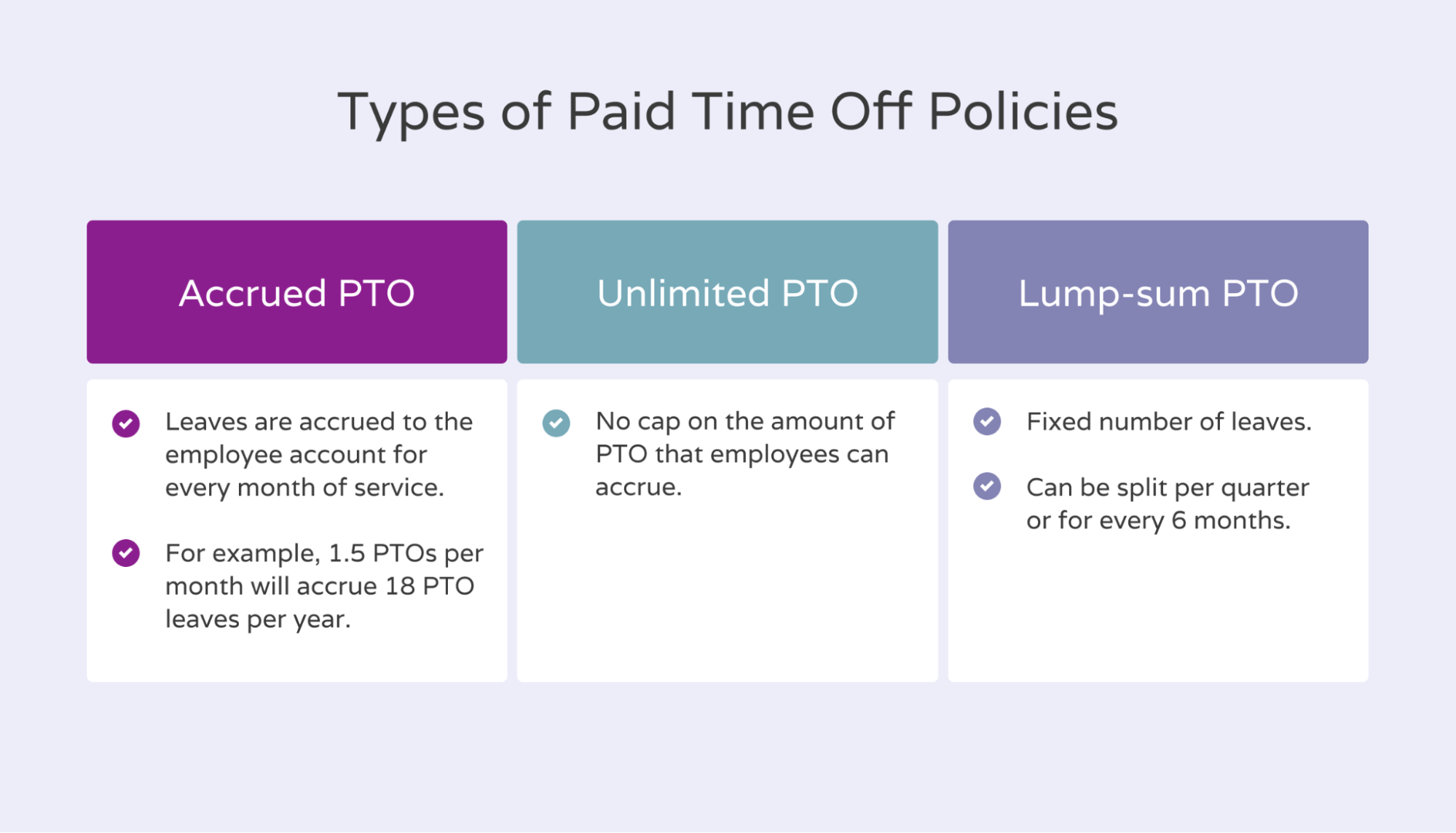
Offering employee benefits can be instrumental in a competitive geographical location. For instance, New York is a competitive city, and medical receptionists there earn an average of $45,150 annually.
If you live in such a city, offering higher compensation and more benefits than what is offered in other areas of the country will help you attract top talent and keep your existing team members from leaving for better offers.
Why you should consider hiring a virtual physical therapy receptionist
If you need a receptionist or assistant for your physical therapy clinic, you don’t need to limit yourself to local talent. You can hire a virtual assistant to perform the same tasks that an in-person employee would.
Virtual receptionists cost much less than in-person employees. With Hello Rache, you pay a flat fee of $9.50 an hour, and there’s no need to add benefits or other perks to retain them.
Though virtual physical therapy receptionists are cheaper to hire than in-person employees, they’re no less talented. In many cases, they’ll have more skills than in-person receptionists in the US.
Let’s explore some of the skills you can expect a virtual receptionist at Hello Rache to bring to your physical therapy clinic.
HIPAA compliance
Every Healthcare Virtual Assistant from Hello Rache is trained in privacy practices. They go through a comprehensive HIPAA training program, which means you don’t need to train them yourself.
As a result, your virtual assistant will understand how HIPAA texting works and keep conversations between the patient and the provider private.
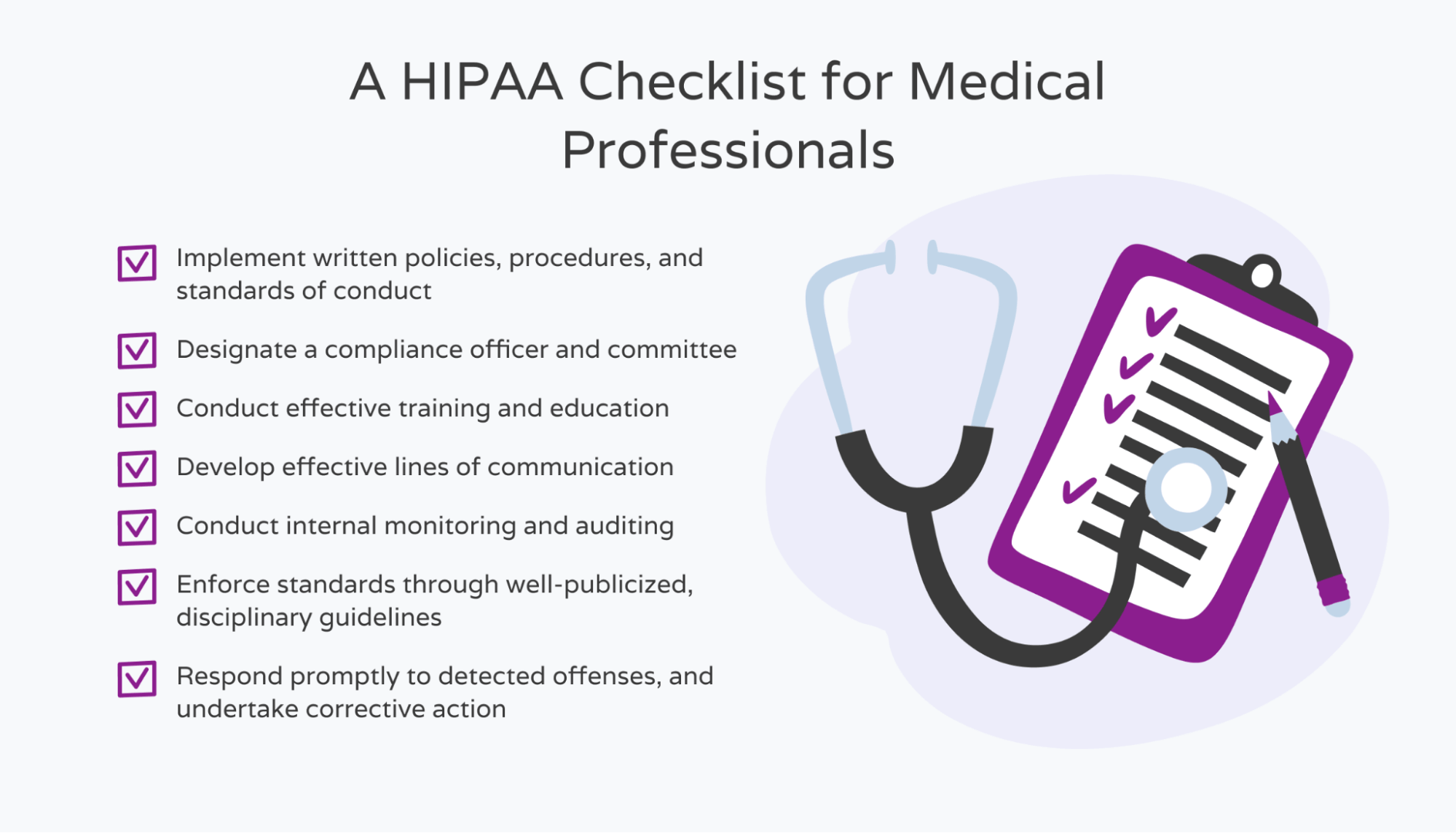
Transcription
Because our virtual physical therapy receptionists receive extensive training in medical terminology, they can accurately transcribe any documentation you give them.
The reason they’re already familiar with these terms is because of their experience as medical professionals. Every Hello Rache remote assistant is either a registered nurse or another medical professional who understands the intricacies of physical therapy.
Excellent telephone etiquette and customer service skills
Virtual physical therapy receptionists work remotely from the Philippines, a country known for having friendly and hard-working people. Because of this, your remote receptionist will have impeccable phone etiquette and customer service skills.
Filipino virtual receptionists can practice patience and empathy even when faced with rudeness. You’ll be leaving your patients in good hands.
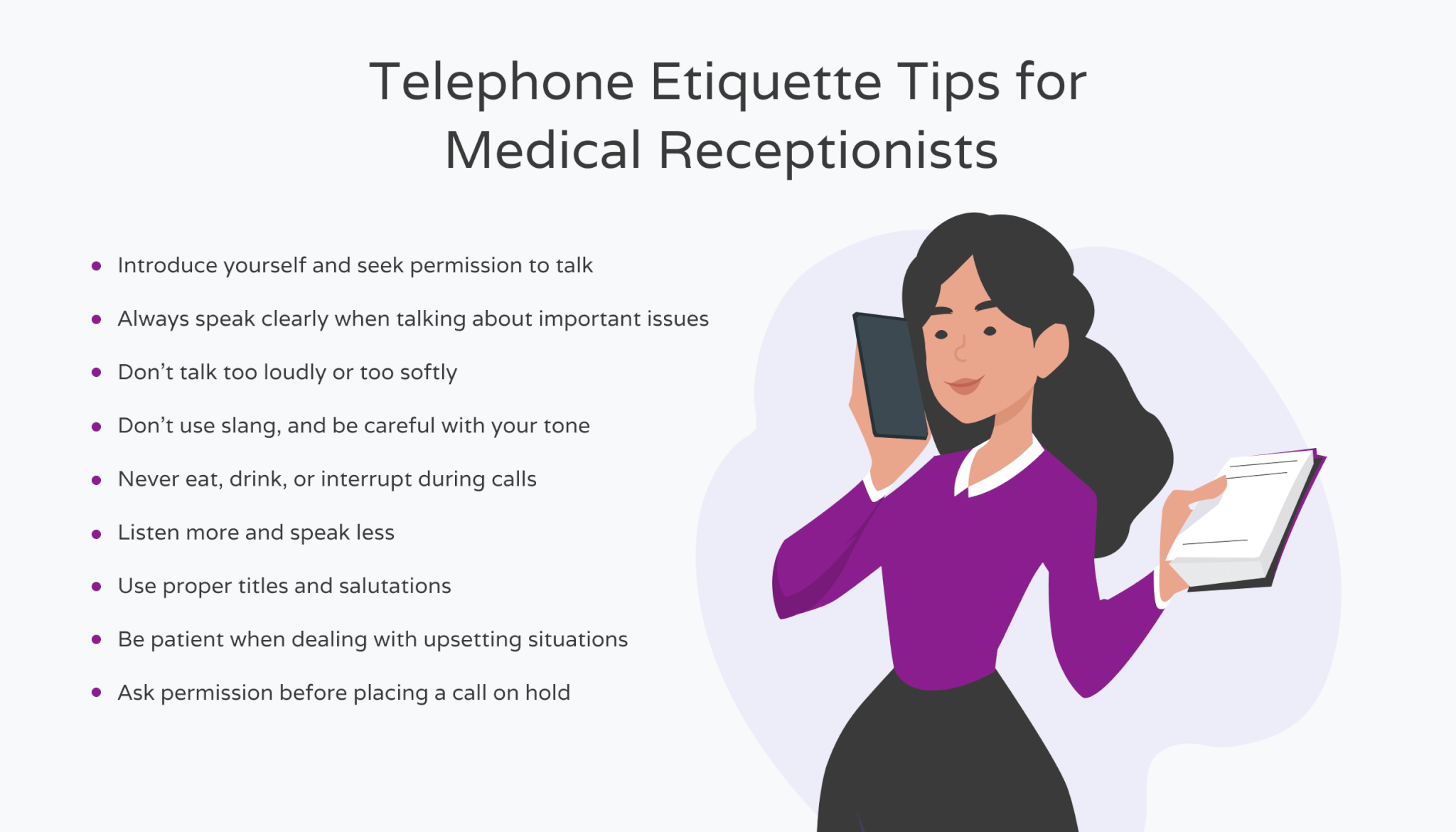
Familiarity with EMR electronic medical record (EMR) systems
If your practice already uses electronic medical record systems, you can rest easy knowing your virtual assistant will know how to use your system properly.
But if your practice doesn’t use one of these systems, you can implement one more easily with the help of your new virtual receptionist. You can even hire several virtual assistants briefly to implement your new system.
Hire a virtual physical therapy receptionist today
Hiring a virtual physical therapy receptionist can be cost-effective for your business. You can find highly skilled providers who are familiar with medical transcription and customer service at half the cost of an in-person employee.
Plus, you don't have to provide virtual workers with office space. They only need an internet connection and a computer.
Whether you need a receptionist or an assistant to win back the hours in your day, Hello Rache has the right professionals for you to add to your team. Schedule a consultation with Hello Rache to learn more about how virtual receptionists can support your physical therapy practice.




